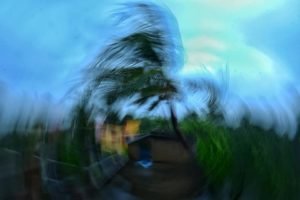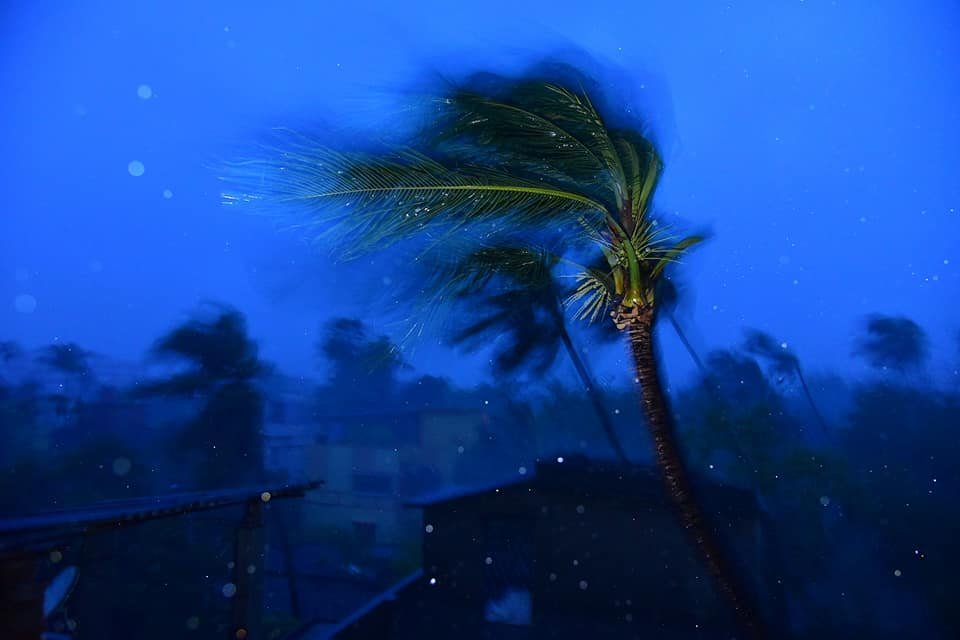While we were still reeling under the Corona storm, the Amphan Super Cyclone lashed out in Bengal and Orissa, to deal a harder blow on May 20th.
Is it just coincidence or workings of some numerology that the year 2020 is playing Twenty-20 with us? We have to wash hands for 20 seconds; we were initially told that the virus remained in the air for 20 minutes; we have been told to maintain a distance of 2.0 yards (“Do gaj ki doori”) in rooms where 20 people stay in a 2-yard space; Amphan struck on 20th of May!
Anyway, while I have been musing on these during lockdown, some pertinent thoughts crossed my mind.
Many of us have had to leave the cities, states or countries that we were born in due to various reasons. Some have done so voluntarily, never to return; some had no other option as their motherland laid out fantastic unemployment opportunities. I had to leave too, but I know I will return after my husband retires.
I am still passionately attached to my umbilical cord – not just by my passport, taxes and foreign exchange remittances. Like the labourers walking back home, I also feel like returning to my city, especially in situations when calamities strike. Am not comparing economic conditions here.
When the lockdown started, our daughter could not return home from her boarding school. She has shown exemplary resolve and maturity even while being depressed. Like many students, stranded around the world, she has had to stay with friends when schools closed suddenly, waiting for flights to resume. Resumption of flights does not necessarily mean she can return as we are skeptical about her staying in quarantine facilities once she lands. The sheer idea of transiting airports on long flights wearing masks all the while; the fear of contracting the virus and then infecting the less-immune of the family – have resulted in an extremely difficult decision-making process.
So how am I, whose elderly parents and family are in a COVID-19 and Cyclone-affected area and daughter is in another country, maintain sanity in my triangular life? If I include my brother and brother-in-law, it will become pentagonal.
Apart from counselling and keeping up spirits of the children on a daily basis, a major task is to make aged parents listen to logical and practical solutions to their daily issues. They can be quite unyielding. Just when my siblings and I think that the supposedly ‘trained’ domestic help (provided by parental care services) is settling down, a Whatsapp message or a distress call informs us that she is either misbehaving or threatening to leave. A few days go by in sorting out these issues, via phone calls (cheers to Internet calls) ably supported by my sister who lives near our parents. I constantly wish I was near them to help them out.
It is a tremendous task to make parents, especially fathers, stay at home. Both sets of our parents (in-laws included) are now in the high-risk category with heart, kidney, diabetes issues that the virus has a special affinity for. How do I make them understand that if anything worse happens, then I will not even be able to see them for the last time?
So, while I tell myself not to worry, worry stealthily creeps into my mind and pings me on a regular basis. As it is, I don’t know when I will be able to see everyone again, let alone visit them. This thought haunts me, periodically, that I may not be able to meet my loved ones.
2020 has become an epitome of uncertainties.
While staying abroad, I often remember Jhumpa Lahiri’s The Namesake where phone calls come in the middle of the night and leaves Ashima sad for days. That is something I have experienced many a times. It leaves me with a helpless feeling.
The helplessness due to the Corona lockdown became manifold when Amphun unleashed its fury on West Bengal. With a hyperactive social media, video clippings and messages started pouring in with the rains in Bengal. I felt the effects along with everyone in Kolkata. Not physically but emotionally. It was almost like experiencing ‘empathetic’ labour pain. Every minute I got updates of the destruction and flooding caused by unprecedented strong winds and rain. The distress was doubled when I lost contact with most of my family, friends and colleagues due to power and telecom failure. For a minimum of two days, I did not get news of how they were surviving. It has taken more than a week to get news of others.

A frenzy named Amphan
PC: Prithwiraj Pal
I was lucky to have had access to Bengali and international TV channels. The national channels were hardly covering the cyclone, though it was such a calamitous event. News came through social and international media. The devastation of Bengal was seen to be believed. I could not concentrate in my work. I did not work…my mind was in turmoil. Worry, instead of creeping in, entered with a bang and played havoc like the cyclone. Hoping that damages were external only, I wanted to hear the familiar voices once more.
As power flickered back, so did the phone lines and voices along with more images and videos. Each more heart-wrenching than the other. There is no way we can stem the tidal waves along the Sundarbans from seeping in nor can we ebb the virus tide while mobilising relief.
Whilst I am sometimes told that I ‘have no idea what people in Bengal are going through’ because I am just a migratory bird who visits in favourable seasons, I sit in my locked down house and devise ways to send relief to my beloved land. Some feel my efforts are genuine; for some, it is a show of haves for the have-nots; and for others, it is just foreign exchange remittance.

